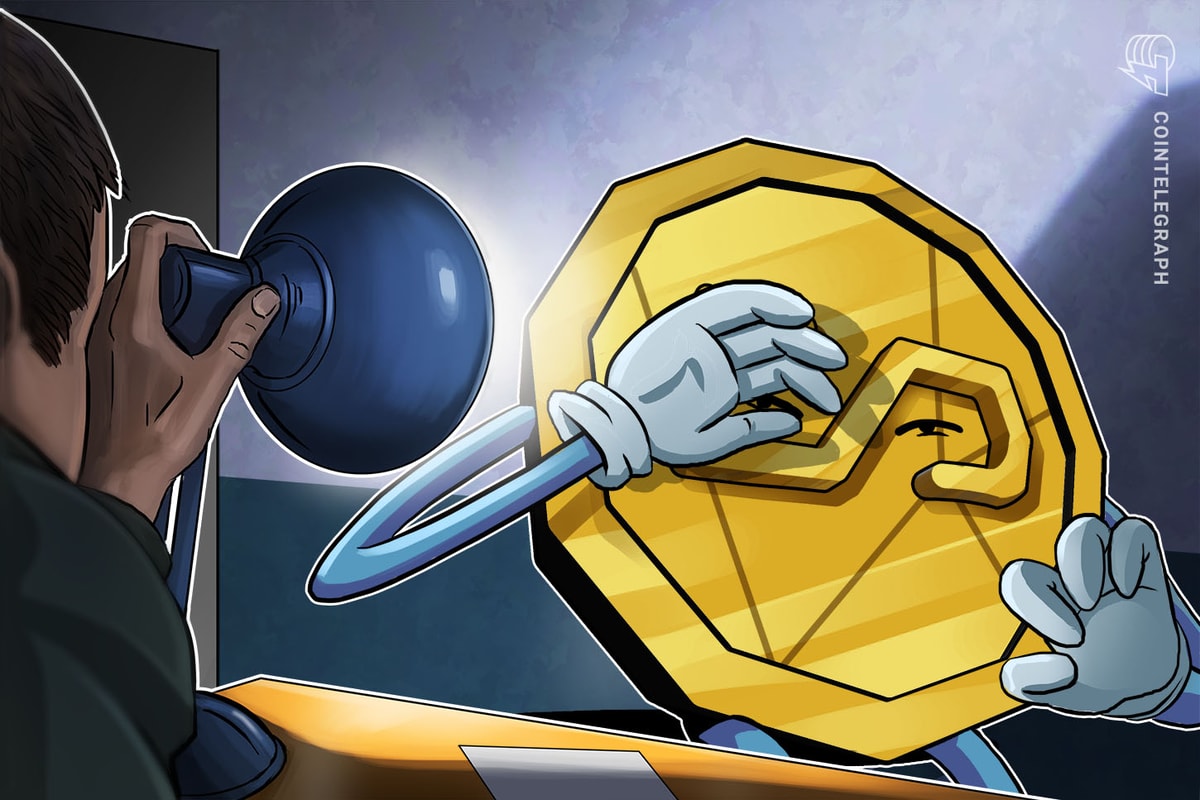
Judging from various reports in the media over the past year, Bitcoin is in a serious crisis that threatens its very existence. Longtime Bitcoin developer Mike Hearn even left the ecosystem entirely and claimed the project is now a failed experiment. Of course, Bitcoin has been proclaimed dead roughly 100 other times.
Scalability is the main concern in Bitcoin right now, but some, including Blockchain Capital Managing Director Brock Pierce, have argued that this is more a sign of success than anything else. The fact that the system needs to scale in order to welcome new users is a sign that people find this technology useful for a variety of use cases.
While it’s important to not become complacent (as longtime cypherpunkZooko Wilcox-O’Hearnrecently warned). Blockstream’s Johnny Dilley said recently that much of the distress and panic coming from certain segments of the community is unwarranted. During an interview on The Crypto Show, Dilley said that progress on scalability is being made by the Bitcoin Core developers, and development gridlock is not as big an issue as some would think.
What Is the Worst That Could Happen?
One of the main reasons there is a belief that Bitcoin is reaching a crisis point has to do with blocks filling up to near capacity (at times). As blocks fill with transactions, a bidding war ensues for the right to get one’s transaction into a block (and confirmed) in a timely manner. In response to this potential issue, Dilley told The Crypto Show:
“The absolute worst thing that could happen to Bitcoin right now is the classic analog: Nobody goes to that restaurant anymore; it’s always full.”
This point reiterates Pierce’s recent statement on how Bitcoin’s scalability issue is a sign of its success. In his remark, Dilley was echoing comments made by BitTorrent creator Bram Cohen in June 2015.
To get a second opinion on Bitcoin’s possible crisis point, Bitcoin Magazine reached out to Digital Currency Council Director of Curriculum & Content Dan McArdle, who believes on-chain transactions should be kept as cheap as possible for as long as possible (via an increase to Bitcoin’s block size limit and other means).
In regard to Dilley’s (or more rightly Cohen’s) restaurant analogy, McArdle responded, “Well, that one restaurant may be crowded, but by not expanding quickly when there's ample demand, it's inviting competitors to eat its lunch.”
McArdle added that Bitcoin has had no competition in the blockchain-based electronic cash market up to this point, but he fears the door to more competition is opened as Bitcoin is “hot-wired for settlement,” as Bitcoin Classic developers Gavin Andresen and Jeff Garzik have referred to it, via Bitcoin Core’s development roadmap for capacity increases.
Scaling Progress Continues to Be Made
While figuring out how to allow more people to use Bitcoin is indeed an issue, Dilley said that work is being done to help solve this problem.
“To be clear, the slow, mediated, not-compromised and technically sound progress continues to be made,” he said. “The things that are in Bitcoin’s best interest continue to get done.”
The recently released Bitcoin Core 0.12.1 is perhaps the strongest evidence to back up Dilley’s claim. This release includes a soft fork for CHECKSEQUENCEVERIFY, which allows for relative locktimes and is hugely important for the development of the Lightning Network, which Blockstream CTO and Bitcoin Core contributor Greg Maxwell views as Bitcoin’s best chance at handling increasing demand for Bitcoin transactions. Bloq co-founder Jeff Garzik disagrees and viewssidechains as a better option.
Bitcoin Core 0.12.1 was also the first time the group of contributors behind the project used BIP 9 (Version Bits) to deploy a soft fork. This method of deployment allows multiple soft forks to be rolled out simultaneously, which means improvements can be implemented more quickly.
Is Bitcoin Threatened by Political Gridlock?
Some members of the Bitcoin ecosystem, such as Bitcoin Foundation chief scientist Gavin Andresen, worry that the difficulties associated with making changes to Bitcoin’s consensus rules are slowing down the development process, but others, such as Bitcoin Core contributor Cory Fields (who is Andresen’s colleague at the MIT Digital Currency Initiative), feel that the inability to implement controversial changes is a sign of strength in terms of Bitcoin’s level of decentralization.
During his interview on The Crypto Show, Dilley compared gridlock in Bitcoin development to gridlock in Congress:
“The differences between political gridlock in Congress and political gridlock in Bitcoin are: One, one doesn’t tax your ****, and two: Bitcoin keeps working.”
Dilley’s point was that Bitcoin would keep working in a scenario where complete gridlock happened and no further changes were possible.
“If every person who could develop on Bitcoin died today (and we assume that there are no security flaws that are going to arise tomorrow that need rapid action) ‒ it will keep working,” he said.
Bitcoin Magazine also asked McArdle for his thoughts on political gridlock in Bitcoin. McArdle referred to this as a “fascinating concept” and admitted that he’s divided on this one. He explained:
“On the one hand, I think gridlock is good if initial conditions are set well (which is, of course, subjective). The U.S. federal government, by design, experiences gridlock in order to ensure that only very important changes occur (theoretically). On the other hand, Bitcoin is a technology that doesn't exist in a vacuum or within some physical border. There has to be a good balance between being nimble and being incorruptible. The ecosystem is only beginning to define its best practices.”
Avoiding a Startup-esque Development Process
One last point made by Dilley on The Crypto Show was that Bitcoin does not use the sort of fast-paced development process that is often found at startups in Silicon Valley. Dilley noted why, in his view, this approach has not been taken by Bitcoin Core contributors:
“We’re talking about $6.5 billion of value, we’re talking about the first attempt for a truly sovereign money. To take an approach where it’s just go as fast as you can until it breaks is not really something that you want to be in place when it comes to Bitcoin.”
Dilley also noted that the fast-paced approach may work when developing a new photo-sharing app, but things work differently when you’re talking about people’s money. He added, “If Bitcoin goes dark for six hours, the game is over, and cryptocurrency gets set back 10 years.”
A Crossroads Rather Than a Crisis
Although some say Bitcoin currently is in a crisis, McArdle defines the current situation as a crossroads. He told Bitcoin Magazine:
“There are competing visions for how to upgrade the system and they have different long-term tradeoffs. But on a technical level, either will work, and one (or both) will soon be implemented, so I don't think it's fair to say that this is a full-blown ‘crisis.’”
In terms of his preference for Bitcoin’s future direction, McArdle added:
“Throwing in the towel on main-chain scaling now, in favor of a ‘settlement-layer’ approach due to the realization that blocksize can't scale forever is a little bit like throwing the baby out with the bathwater.”
McArdle believes Bitcoin should scale via on-chain and layer-2 solutions.
“It doesn't have to be one or the other,” he said, “and main-chain fees don't have to rise soon, even with significantly increasing usage.”
As far as the declarations that the Bitcoin experiment is over, McArdle finds such claims to be vastly premature and more-or-less absurd. Although he’s concerned that many in the Bitcoin ecosystem are willing to accept higher on-chain fees, ignore the competitive landscape and opt for more complex solutions (at least in his view), he added, “None of that means Bitcoin is failing by any means.”
McArdle shared these final thoughts on Bitcoin’s crossroads moment:
“When I first started researching Bitcoin in 2011, I realized that it had the potential to be the best form of money humanity has ever created. And that's still true today. After all, money in all forms, be it seashells or government-issued digits in a bank account, is just a societal ledger used to reduce the friction of exchange. Bitcoin is the most irrefutable, global, low-friction ledger ever created. We should make sure that however Bitcoin grows, all of those properties remain intact.”










